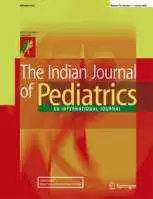Celiac.com 08/06/2009 - A study by a team of Spanish researchers puts the world on notice that gluten may trigger adverse reactions in both celiacs and non-celiacs alike. The research team was made up of E. Arranz, D. Bernardo, L. Fernandez-Salazar, J. A. Garrote and their colleague S. Riestra, all doctors based in Spain.
According to the current medical wisdom, innate immunity to gluten plays a critical role in the development of celiac disease (celiac disease).
Celiac.com Sponsor (A12):
This innate immune response is caused by a reaction to the ‘toxic’ gluten peptides that is mediated by interleukin (IL) 15, like the 19-mer through a DQ2-independent mechanism, and which causes epithelial stress and triggers the intraepithelial lymphocytes to turn into natural killer (NK)-like cells, which then causes enterocyte apoptosis and a compromised permeability of the cells lining of the gut…and, violà, celiac disease!
It is by breaching this lining that immuno-dominant peptides, such as the 33-mer peptide, come into contact with the lamina propria, which triggers adaptive immunity.
The innate specific response in celiac disease has been pretty well documented, but until recently, no one had described any differential factors between people with celiac disease and those without.
Since the toxic 19-mer triggers its damaging effects through a DQ2-independent mechanism, doctors wondered whether the innate immune response was common in both people with and without celiac disease, and whether the adaptive response is emblematic only of susceptible people with celiac disease.
A team of researchers recently set out to determine just that, beginning with biopsies from at least three patients with celiac disease who were observing a gluten-free diet and three patients who are free of celiac disease. The research team consisted of D. Bernardo, L. Fernandez-Salazar, J. A. Garrote and their colleague S. Riestra, all based in Spain.
The team applied crude gliadin, the gliadin synthetic 19-mer and deaminated 33-mer peptides to the biopsy tissue after discarding the presence of lipopolysaccharide.
They did this at concentrations of 100 mg/ml for 3 hours to mimic what are considered the standard timing and concentration in the digestive tract after a routine meal.
The research team then washed the specimens and cultured them for 21 hours in new clean culture medium to assess whether an innate stimulus is reflected by an adaptive response.
Here’s some technical jargon:
Each sample cultured in basal medium served as an internal control. Innate immune mediators IL15 and nitrites were measured by western blot in the biopsy protein extract along with a Griess reagent system in the 3 h supernatants respectively. mRNA levels of adaptive immunity mediators like signal transducers and activators of transcription (STAT) 1, STAT3, tumour necrosis factor a, interferon (IFN) c, IL23 (p19), IL27 (p28) and IL12 (p35) were determined by real-time polymerase chain reaction using b actine levels as house-keeping.
Compared with the basal culture, all of the patients were challenged with the gliadin solution, and all of the patients, both those with and those without celiac disease on a gluten free diet, showed IL15 production, which indicates an immune reaction is taking place.
More importantly, the IL15-mediated response in patients without celiac disease was triggered, in three of six cases, by the same toxic 19-mer gliadin peptide and, in five of six cases, by the 33-mer gliadin peptide as in those with celiac disease.
Significantly, none of the basal cultures showed this result, though the ‘‘non-toxic’’ immuno-dominant 33-mer did induce an innate response that was un-foreseen.
Interestingly, one patient with celiac disease and on a gluten-free diet, and three patients without celiac disease, who were also on gluten-free diets, all showed the IL15 response, which was confirmed by western blot analysis. This discounts an intracellular and non-biologically active IL15 response in patients without celiac disease.
The gliadin-challenged patients with celiac disease who were on a GFD, showed increased nitrite levels, which those without celiac disease did not show. Following the biopsy mRNA isolation, only patients with celiac disease showed modifications to what are called adaptive mediators (STAT1, STAT3, IFNc).
The basal samples of those celiac patients on a gluten-free diet showed
IFNc mRNA levels that were 80 times higher than basal samples of those without celiac disease (p value 0.002), along with a slightly higher production of nitrites (p value 0.052).
This appears to be the first time that researchers have described an IL15-mediated innate response to gliadin and gliadin peptides in people without celiac disease, as well as the first time they have described an IL15-mediated innate response to the ‘non-toxic’ deaminated immuno-dominant 33-mer peptide.
What this all means is that, for the first time, scientists have documented harmful effects of gluten on people without celiac disease. This hypothesis seems to be born out by the fact that all individuals who took place in the study, both those with and those without celiac disease, showed an innate immune response to gluten, though only those with celiac disease showed an adaptive immune response to gluten.
Clearly, before doctors can draw any hard and fast conclusions, they will need to do more studies on larger groups.
The research team also suggests that people with celiac disease have a lower threshold for triggering an adaptive TH1 response than do non-celiacs, and that people with celiac disease need to be DQ2 positive.
The reason for the differences in threshold levels between celiacs and non-celiacs might be tied to the fact that celiac patients show higher basal levels of immune mediators, such as IFNc mRNA, compared to those without celiac disease. That’s one possibility.
The difference in threshold levels might also have to do with some kind of defect in permeability of the gut membrane in those with celiac disease, or even a greater IL15-sensitivity response under equal stimulus, which might be mediated by a higher density of IL15 receptor in patients with celiac disease.
Open Original Shared Link








Recommended Comments